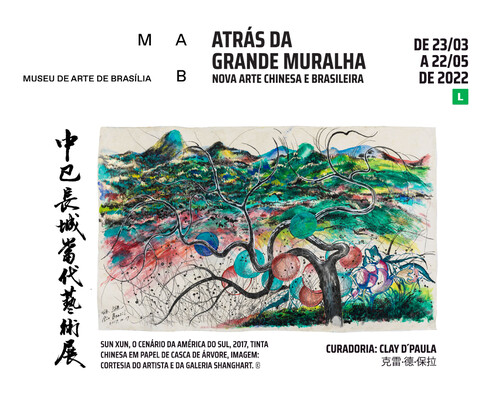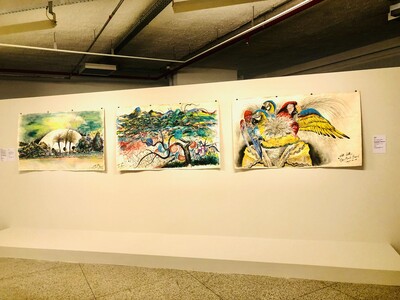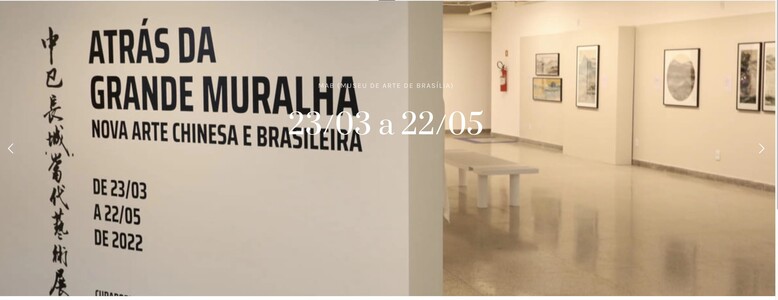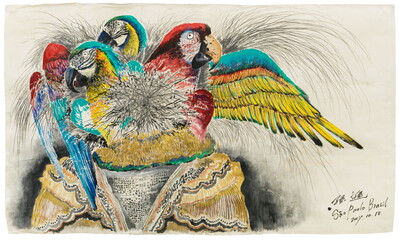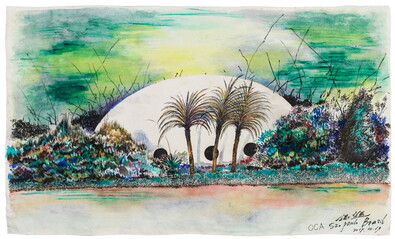Group Exhibition Modern Art of Brasília Museum, Brazil
Curator: Clay D'Paula
BEHIND THE GREAT WALL, as the allegorical title of the exhibition suggests, presents a careful selection of the new Chinese art in an attempt to expand the repertoire most commonly known by the Brazilian audience: calligraphy and Chinese ink. The peculiarity of this new artistic output is that it carries elements of the local culture and tradition while, at the same time, it composes a transnational discourse with pluriversal narratives. This is an art that does not meet the standards of provincialism and provokes thoughts on the global-society relevant contexts.
The concern of Chinese artists resides in the collectivity, in the interferences that favor or threaten life on Earth. The Brazilian artists participating in the show share similar concerns. Both groups explore subjects that confront and subvert the contemporary Zeitgeist, including the unequal pace of globalization, the inconstancy and fragility of matter, environmental issues, human hypocrisy, the narrow and desolating territory of prejudice, and the condition called fuzzynomics.1
Inspired by all these challenges, the exhibition brings together a wide range of media and languages, such as painting (with oil paint, acrylic paint, and Chinese ink), sculpture, paper cutting, photography, woodcut, animation, and site-specific art. It is exciting to see up close so much creativity and dynamism in works that, by means of their exuberance, with high technical, and aesthetic rigor, are able to portray or translate the physical and psychological reality of humanity of our time.
This exhibition draws its strength and originality from the narratives on the intersection of Brazilian artists and the Chinese tradition, the West and the East. Thus, its proposition is to be a true crossroads and to map connections that can provide new perspectives.
Brazil and China, countries that are geographically huge, rich in diversity and rapidly changing, have close diplomatic and trade relations. We hope that this exhibition contributes to strengthen these relations and encourages the people of both nations to engage in further dialog.
—— Clay D'Paula
More Pictures:

